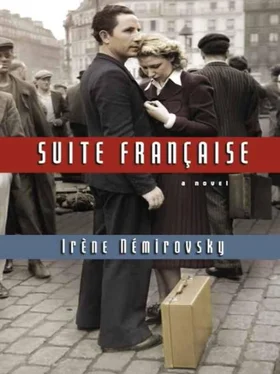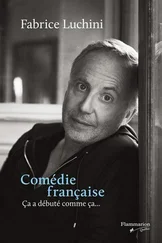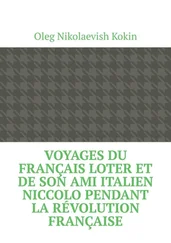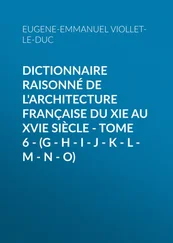"If I were you," the soldier finally said, "I'd hurry up and get out of here 'cause the Germans are definitely going to show up. It's a miracle they aren't here yet. Still, they don't have to hurry," he added bitterly, "they've got it sewn up from here to Bayonne…"
"Do you think we have any chance?" Florence asked shyly.
The soldier didn't answer and suddenly left. They left too, hobbling along, heading straight for the outskirts. Gradually, refugees began to emerge from the seemingly deserted town, weighed down with baggage. In the same way that animals separated in a storm find their herd when the storm has passed, they came together in small groups and walked towards the bridge; it was guarded by soldiers who let them pass. Gabriel and Florence followed. Above, the sky shimmered a pure azure blue: no clouds, no planes. Below, a beautiful glistening river flowed by. In front of them, they could see the road leading south and some very young trees with new green leaves. Suddenly the trees seemed to be moving towards them. German trucks and guns, covered with camouflage, were heading straight at them. Corte saw people ahead raising their arms and running back. At that moment the French soldiers opened fire. When the German machine-guns fired back, the refugees were caught in the crossfire. They ran in all directions. Some simply whirled round on the spot as if they'd gone mad; one woman climbed over the parapet and threw herself into the river.
Florence dug her nails into Corte's arm and screamed, "Turn back, hurry!"
"But they'll blow up the bridge," Corte shouted.
Taking her hand, he propelled her forward and suddenly a thought shot through him, as strange, burning and sharp as lightning: they were running towards death. He pulled her close and, pushing her head down, covered it with his coat as you cover the eyes of a condemned man. Then, stumbling, panting, half carrying her, he ran the short distance to the other side of the river. Even though his heart was pounding in his chest, he wasn't actually afraid. He had a passionate, urgent desire to save Florence. He had faith in something invisible, in a guiding hand reaching out to him, to him, weak, miserable, insignificant, so insignificant that destiny would spare him, as a wisp of straw sometimes survives a storm. They made it across the bridge, narrowly missing the advancing Germans with their machine-guns and green uniforms. The road was clear, death was behind them and suddenly they saw it-yes, they were right, they recognised it-right there, at the edge of a little country lane, their car and their loyal servants waiting for them. Florence could only groan, "Julie, thank God. Julie!"
To Corte, the voices of the driver and maid sounded like the low, strange noises you hear through a fog just before you faint. Florence was crying. Slowly, incredulously, painfully, Corte realised that he had his car back, his manuscripts back, his life back. He would no longer be an ordinary man, suffering, starving, both courageous and cowardly at the same time, but instead a privileged creature, protected from all evil. He would be-Gabriel Corte!
At last Hubert arrived at the Allier river with the men he'd met on the road. It was noon on Monday, 17 June. Volunteers had joined the soldiers along the way. There were policemen, members of the home guard, a few Senegalese, and soldiers whose defeated companies were trying in vain to regroup and who clung on to any little island of resistance with hopeless courage. There were also young boys like Hubert Péricand who'd become separated from their fleeing families or run away in the night "to join the troops." These magical words had spread from village to village, from one farm to the next. "We're going to join the troops, dodge the Germans, regroup by the Loire," said hordes of sixteen-year-olds. These children carried sacks over their shoulders (the remainder of yesterday's afternoon tea hastily wrapped up in a shirt and jumper by a tearful mother); their faces were round and rosy, their fingers stained with ink, their voices breaking. Three of them were accompanied by their fathers, veterans of '14, whose age, former injuries and family situation had prevented them from joining up in September.
At the bottom of the steps that led down from a stone bridge sat the Commander in Chief of the battalion. Hubert counted nearly 200 men on the road and river bank. In his naivety he believed that this powerful army would now confront the enemy. He saw explosives stacked up on the stone bridge; what he didn't know was that there was no fuse to light them. Silently the soldiers went about their business or slept on the ground. They hadn't eaten anything since the day before. Towards evening, bottles of beer were handed out. Hubert wasn't hungry but the frothy, bitter beer made him feel happy. It helped him to keep up his courage. No one actually seemed to need him. He went from one person to the other, shyly offering to help; no one answered him, no one even looked at him. He saw two soldiers dragging some straw and bundles of firewood to the bridge; another was pushing a barrel of tar. Hubert grabbed an enormous bundle of wood but so clumsily that splinters ripped his hands and he let out a little cry of pain. Throwing it on to the bridge, he heaved a sigh of relief that no one appeared to have noticed, only to hear one of the men call out, "What the hell are you doing here? Can't you see you're just in the way?"
Wounded to the core, Hubert moved aside. He stood motionless on the road to Saint-Pourçain, facing the river, and watched the incomprehensible actions of the soldiers: the straw and the wood had been doused in tar and placed on the bridge next to a fifty-litre drum of petrol; by using a seventy-five-millimetre gun to detonate the explosives, they were counting on this barricade to hold back the enemy troops.
And so the rest of the day went by, then the night and the entire next morning. The hours of boredom felt strange and incoherent, like a fever. Still nothing to eat, nothing to drink. Even the young boys from the countryside lost their fresh complexions. Pale with hunger, blackened by dust, hair dishevelled, eyes burning, a sad and stubborn expression on their faces, they seemed suddenly older.
It was two o'clock when the first Germans came into sight on the other side of the river. Their motor convoy had come through Paray-le-Monial that very morning. Dumbfounded, Hubert watched them head towards the bridge at incredible speed, like a wild, warlike streak of lightning searing through the peaceful countryside. It only lasted a second: a gunshot set off the barrels of explosive forming the barricade. Debris from the bridge, the vehicles and their drivers all fell into the river. Hubert saw soldiers running ahead.
"This is it! We're attacking," he thought. He got goose bumps and his throat went dry, like when he was a child and heard the first strains of military music in the street. He hurled himself towards the straw and wood barricade just as it was being set on fire. The black smoke from the tar filled his nose and mouth. Behind this protective wall, machine-guns were holding back the German tanks. Choking, coughing, sneezing, Hubert crawled a few steps backwards. He was in despair. He had no weapon. All he could do was stand there. They were fighting and he just stood there, arms folded, inert, useless. He felt a little better when he saw that all around him they were taking the enemy's attack without fighting back. He considered this a complex tactical manoeuvre until he realised that the men had almost no ammunition. "Nevertheless," he thought, "if we've been left here it's because we're needed, we're useful, we're defending the bulk of the French army, for all we know." At every moment he expected to see more troops appearing on the road to Saint-Pourçain. "We're here, lads," they'd shout, "don't worry! We'll beat them!"-or some other warlike cry. But no one came.
Читать дальше

![Константин Бальмонт - Константин Бальмонт и поэзия французского языка/Konstantin Balmont et la poésie de langue française [билингва ru-fr]](/books/60875/konstantin-balmont-konstantin-balmont-i-poeziya-francuzskogo-yazyka-konstantin-balmont-et-thumb.webp)










